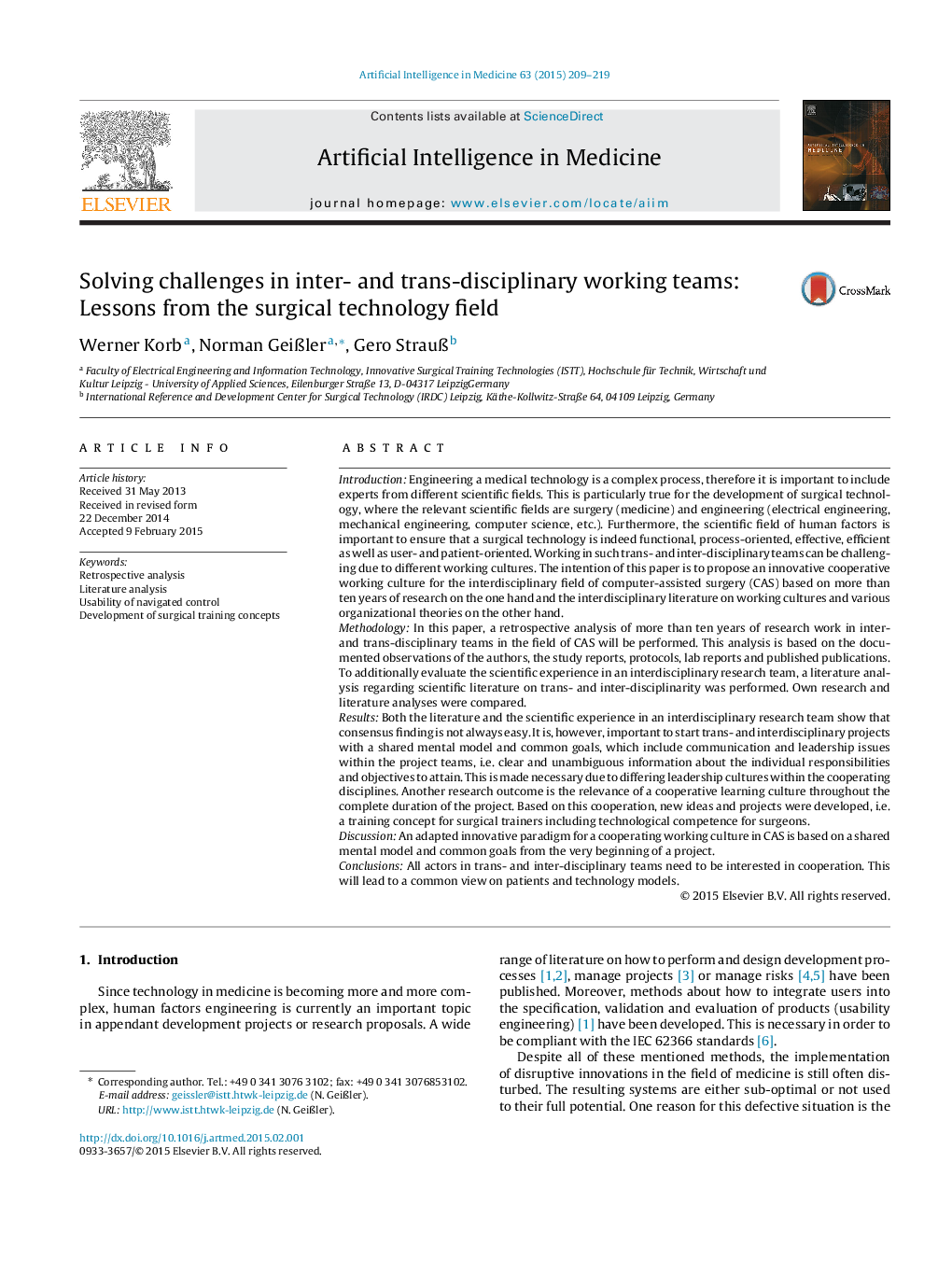| کد مقاله | کد نشریه | سال انتشار | مقاله انگلیسی | نسخه تمام متن |
|---|---|---|---|---|
| 377674 | 658811 | 2015 | 11 صفحه PDF | دانلود رایگان |
IntroductionEngineering a medical technology is a complex process, therefore it is important to include experts from different scientific fields. This is particularly true for the development of surgical technology, where the relevant scientific fields are surgery (medicine) and engineering (electrical engineering, mechanical engineering, computer science, etc.). Furthermore, the scientific field of human factors is important to ensure that a surgical technology is indeed functional, process-oriented, effective, efficient as well as user- and patient-oriented. Working in such trans- and inter-disciplinary teams can be challenging due to different working cultures. The intention of this paper is to propose an innovative cooperative working culture for the interdisciplinary field of computer-assisted surgery (CAS) based on more than ten years of research on the one hand and the interdisciplinary literature on working cultures and various organizational theories on the other hand.MethodologyIn this paper, a retrospective analysis of more than ten years of research work in inter- and trans-disciplinary teams in the field of CAS will be performed. This analysis is based on the documented observations of the authors, the study reports, protocols, lab reports and published publications. To additionally evaluate the scientific experience in an interdisciplinary research team, a literature analysis regarding scientific literature on trans- and inter-disciplinarity was performed. Own research and literature analyses were compared.ResultsBoth the literature and the scientific experience in an interdisciplinary research team show that consensus finding is not always easy. It is, however, important to start trans- and interdisciplinary projects with a shared mental model and common goals, which include communication and leadership issues within the project teams, i.e. clear and unambiguous information about the individual responsibilities and objectives to attain. This is made necessary due to differing leadership cultures within the cooperating disciplines. Another research outcome is the relevance of a cooperative learning culture throughout the complete duration of the project. Based on this cooperation, new ideas and projects were developed, i.e. a training concept for surgical trainers including technological competence for surgeons.DiscussionAn adapted innovative paradigm for a cooperating working culture in CAS is based on a shared mental model and common goals from the very beginning of a project.ConclusionsAll actors in trans- and inter-disciplinary teams need to be interested in cooperation. This will lead to a common view on patients and technology models.
Journal: Artificial Intelligence in Medicine - Volume 63, Issue 3, March 2015, Pages 209–219
